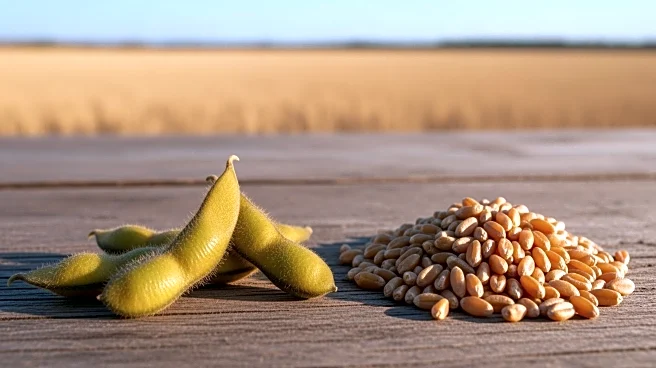What is the story about?
What's Happening?
Missouri and Ontario are leading the way in sustainable agriculture education, with universities in both regions offering extensive programs focused on climate-smart farming practices. In Missouri, top universities provide over 15 degree options in sustainable agriculture and environmental stewardship, emphasizing soil health, water conservation, and biodiversity. These programs integrate ecological principles into farming systems to enhance productivity while reducing environmental impact. Similarly, Ontario's sustainable agriculture programs have incorporated climate-smart soil management courses, with over 80% of programs now including these courses. The focus is on carbon-sequestering practices, precision nutrient management, and energy efficiency to lower greenhouse gas emissions and increase resilience. Both regions are pioneering adaptive farming transformations to meet the growing global food demand and address environmental degradation.
Why It's Important?
The expansion of sustainable agriculture programs in Missouri and Ontario is crucial for addressing climate change and ensuring food security. By promoting practices that reduce greenhouse gas emissions and enhance resilience, these programs contribute to long-term environmental health and sustainable farming. Farmers and communities stand to benefit from improved soil health, reduced chemical inputs, and increased biodiversity, which are essential for maintaining productive yields and farmer resilience. The integration of advanced technology, such as precision farming and AI-based recommendations, further supports sustainable practices and resource optimization. These initiatives not only safeguard natural resources but also empower farmers to adapt to climate variability and economic uncertainty, ensuring a resilient food system for future generations.
What's Next?
As sustainable agriculture programs continue to evolve, Missouri and Ontario are expected to further integrate technology-driven solutions to enhance farming practices. The use of satellite monitoring, AI analytics, and blockchain traceability will likely become more prevalent, providing farmers with real-time data and actionable insights for sustainable management. Additionally, cross-border learning opportunities between Missouri and Ontario may increase, allowing for the exchange of innovative practices and research. Policymakers and educational institutions are likely to focus on expanding accessibility to these programs, ensuring that all farm operations, including smallholder and Indigenous farmers, can benefit from sustainable agriculture education and support.
Beyond the Headlines
The expansion of sustainable agriculture programs in Missouri and Ontario highlights the ethical and cultural dimensions of farming practices. By incorporating Indigenous knowledge and land stewardship principles, these programs promote holistic ecosystem management and sustainability. The emphasis on community engagement and local-food economies strengthens the resilience and adaptive capacity of participants, fostering a sense of shared responsibility for environmental stewardship. As these programs continue to grow, they may trigger long-term shifts in agricultural policy and consumer behavior, encouraging more sustainable and climate-conscious practices across the industry.
















